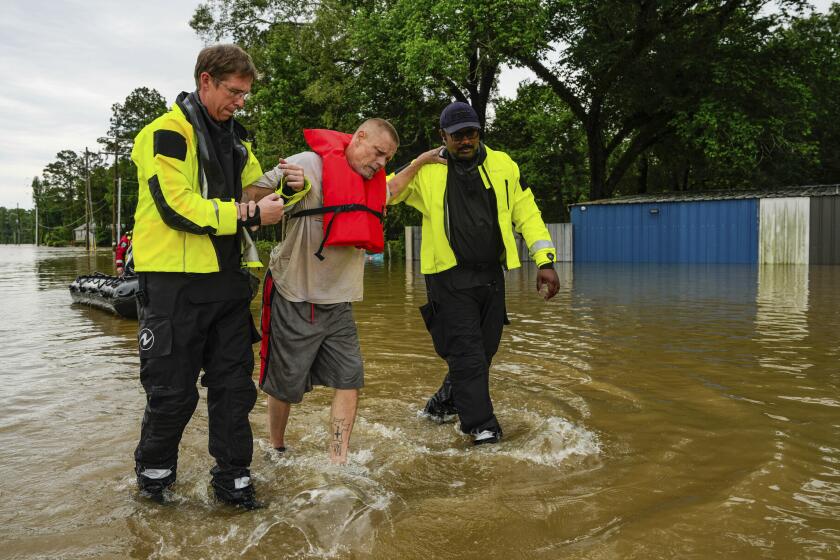Plug the Blackwater hole
Five Blackwater security guards indicted in the shooting deaths last year of 17 Iraqi civilians are innocent until proven guilty, and even if convicted might be freed because of ambiguities in U.S. law. But the Justice Department is right to seek to put before a jury its allegation that the guards recklessly caused a bloodbath on Sept. 16, 2007.
The decision to prosecute the Blackwater contractors, which follows a searching investigation by the FBI, addresses a source of conflict between Iraq and the United States. But diplomatic considerations alone aren’t sufficient justification for this prosecution. The weightier imperative is to prove to Iraqis and Americans that, to the extent possible under U.S. law, justice will be done.
Escorting State Department officials through downtown Baghdad, the five defendants -- and a sixth Blackwater employee who has turned state’s evidence -- fired on other civilians after killing the occupants of a car that unwittingly had approached a blockade. According to prosecutors, the car “posed no threat” to the convoy, and the subsequent shootings also were unprovoked. The defendants say they acted in self-defense.
The shootings incited understandable outrage among Iraqis, compounded by the fact that the private security contractors were immune to prosecution by either the U.S. military or Iraq. The incident also led to strife between the U.S. and the Iraqi government, which has had to fend off accusations that it is a compliant client state.
Under a new status-of-forces agreement between Iraq and the United States, “Iraq has the primary right to exercise jurisdiction over private contractors which have contracts with the United States and their employees.” But the agreement isn’t retroactive. Pressed by Congress last year about whether the Blackwater employees could be put on trial, Secretary of State Condoleezza Rice said that “there is a hole” in the law where prosecution of private contractors was concerned.
Rice may be right. The Military Extraterritorial Jurisdiction Act allows for the prosecution of civilians who are “employed by or accompanying the armed forces outside the United States.” A grand jury concluded that even though the Blackwater defendants worked for the State Department, they were supporting a military mission and are thus covered by the law. Certainly that interpretation is in the spirit of the law; whether it satisfies the law’s letter must be decided by the courts. (The defendants also argue that they can’t be prosecuted because they were offered immunity by the State Department.)
Meanwhile, Congress should enact legislation passed last year by the House that would allow for the prosecution of U.S. contractors in foreign countries -- regardless of the agency for which they work -- if the foreign country doesn’t choose to prosecute. If the “hole” mentioned by Rice exists, it should be plugged.
More to Read
Start your day right
Sign up for Essential California for news, features and recommendations from the L.A. Times and beyond in your inbox six days a week.
You may occasionally receive promotional content from the Los Angeles Times.






